Courses

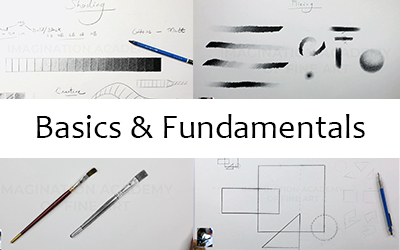
 Compare
Compare
Master the essential concepts and foundational skills you need to succeed in your field. This beginner-friendly course breaks down core principles into easy-to-understand lessons, helping you build a strong knowledge base from the ground up. With practical examples, interactive exercises, and expert guidance, you'll gain confidence and competence to take your learning to the next level. Perfect for beginners or anyone looking to refresh their understanding of the basics.
6000₹
10 Lessons
07:26:00 Hours
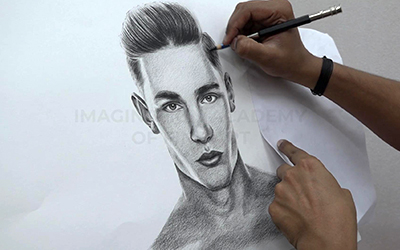
 Compare
Compare
Graphite medium consists of a mixture of graphite and clay, typically used in pencils for drawing and sketching. It offers a range of hardness levels, allowing for fine lines and detailed work as well as softer, darker shading. Graphite is versatile and can be blended, erased, and layered, making it ideal for various techniques, including hatching, shading, and smudging. It’s commonly used in fine art, illustration, and technical drawing due to its precision and ease of use.
1800₹
3 Lessons
04:11:17 Hours
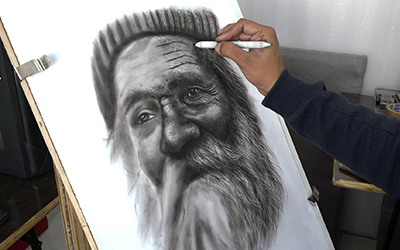
 Compare
Compare
Charcoal medium technique involves using charcoal sticks or pencils to create drawings characterized by rich blacks and soft grays. Artists can achieve various effects by adjusting pressure, blending with fingers or tools, and erasing for highlights. This technique is known for its versatility, allowing for both detailed line work and broad, expressive shading. It’s commonly used in figure drawing, portraits, and expressive sketches.
2400₹
4 Lessons
03:13:26 Hours
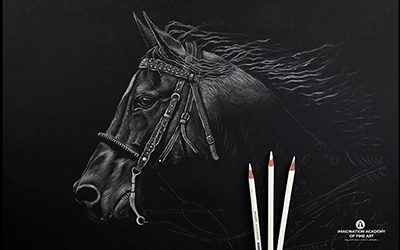
 Compare
Compare
Glass marking medium is a specialized material used for drawing or writing on glass surfaces. It typically comes in the form of markers or paint, designed to adhere to smooth, non-porous surfaces like glass, mirrors, or ceramics, and can be either temporary or permanent depending on the type used.
1800₹
3 Lessons
03:00:51 Hours
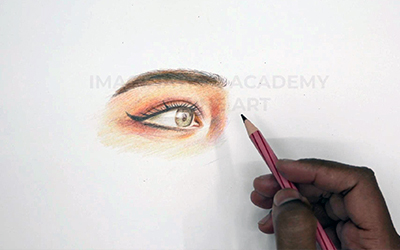
 Compare
Compare
Color pencil medium consists of wax- or oil-based pencils that offer vibrant colors, precision, and versatility. They are ideal for detailed work, layering, and blending, making them perfect for illustrations, fine art, and realistic drawings on various surfaces like paper and sketch pads.
1200₹
2 Lessons
02:30:22 Hours
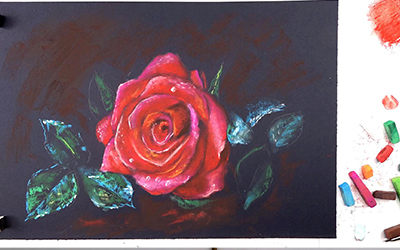
 Compare
Compare
Soft pastel medium consists of fine, powdered pigments mixed with a binder, resulting in vibrant, easily blendable sticks. Known for their smooth application and rich color saturation, soft pastels are ideal for creating expressive, textured artworks and detailed illustrations on various surfaces, particularly textured paper.
1800₹
3 Lessons
01:42:27 Hours
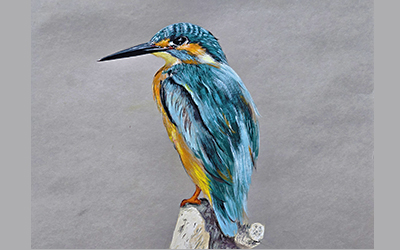
 Compare
Compare
Poster color medium is a type of opaque paint with vibrant pigments, ideal for creating bold and colorful artwork. It is commonly used for illustrations, posters, and designs, providing excellent coverage and a matte finish that dries quickly.
1200₹
2 Lessons
02:49:59 Hours
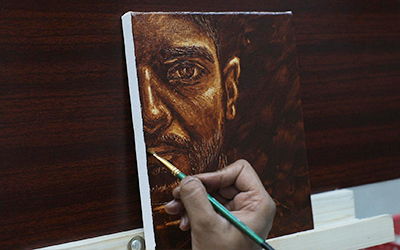
 Compare
Compare
Discover the oil color reverse technique in this tutorial, where you learn to create striking artworks by painting in reverse order. This unique approach involves starting with the darkest tones and gradually adding lighter layers, revealing vibrant highlights and enhancing depth, making it an exciting method for creating dynamic textures and contrasts.
1200₹
1 Lessons
01:16:53 Hours
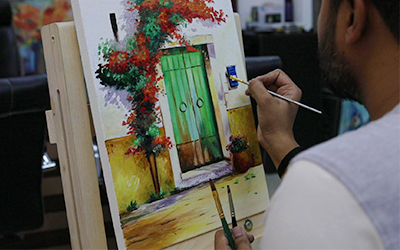
 Compare
Compare
Learn how to create a stunning landscape painting using oil colors in this step-by-step tutorial. Perfect for beginners and experienced artists alike, this guide covers essential techniques for capturing the beauty of nature, including color mixing and brushwork tips to bring your landscape to life.
1800₹
3 Lessons
03:17:25 Hours